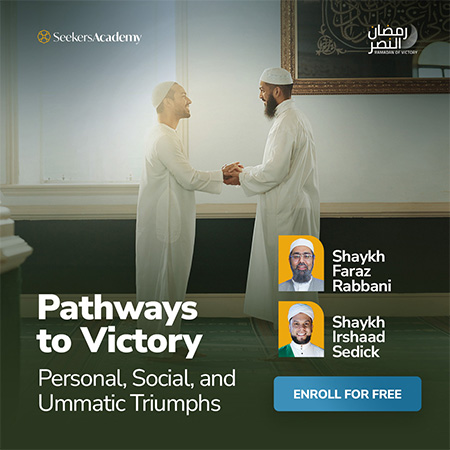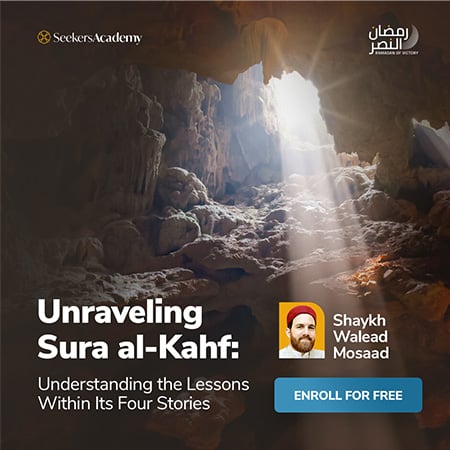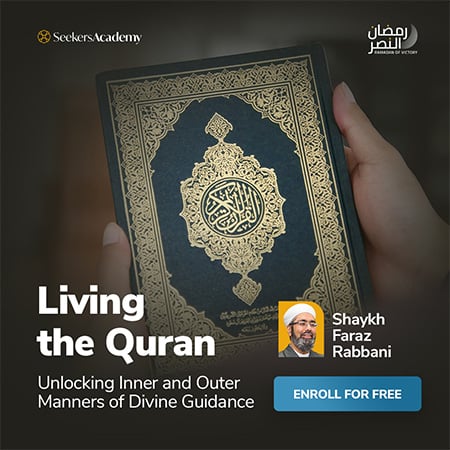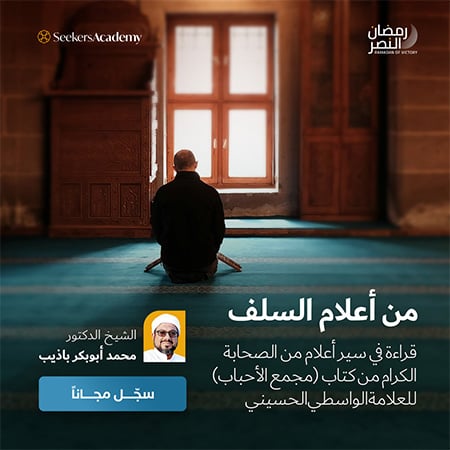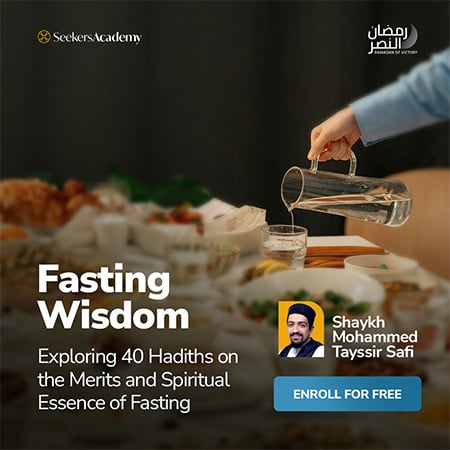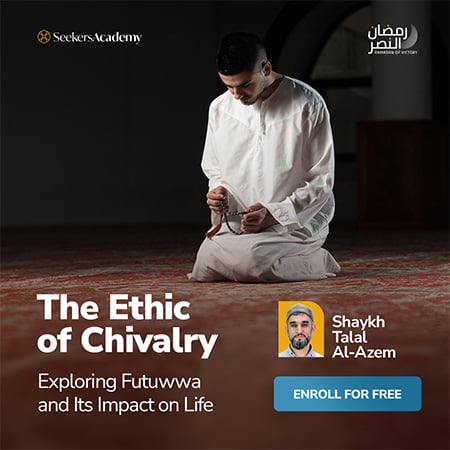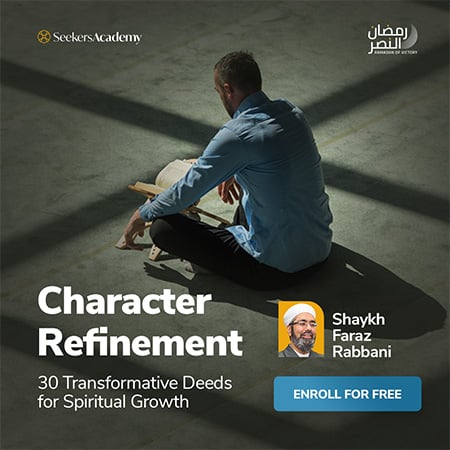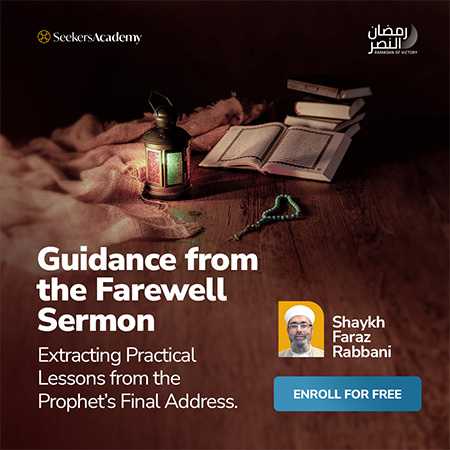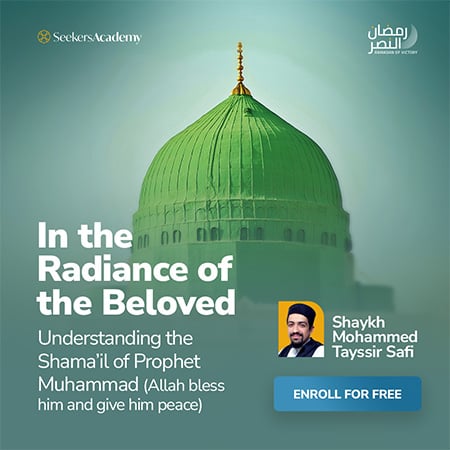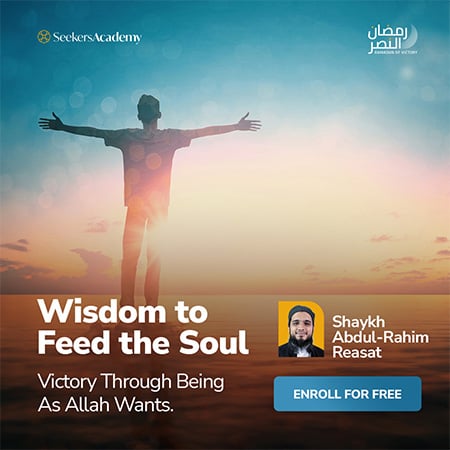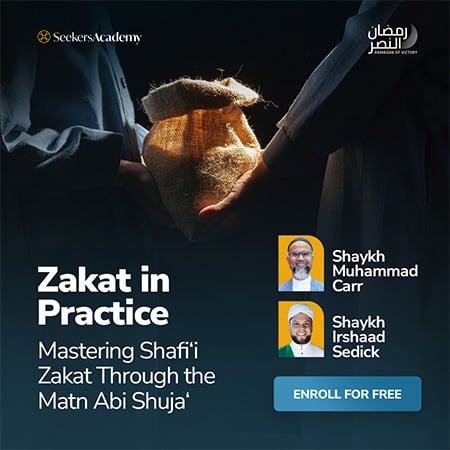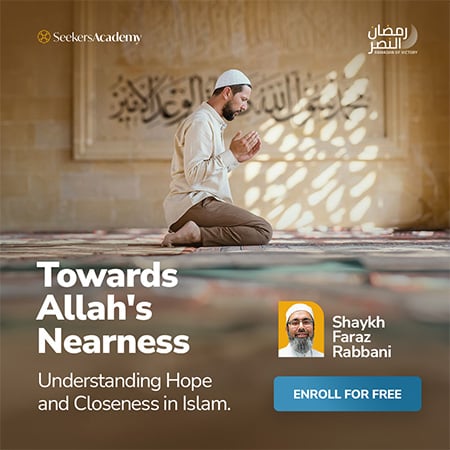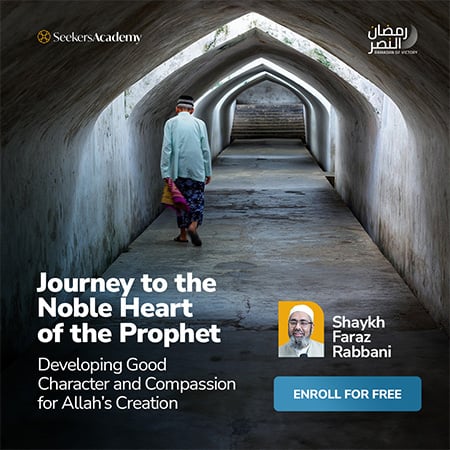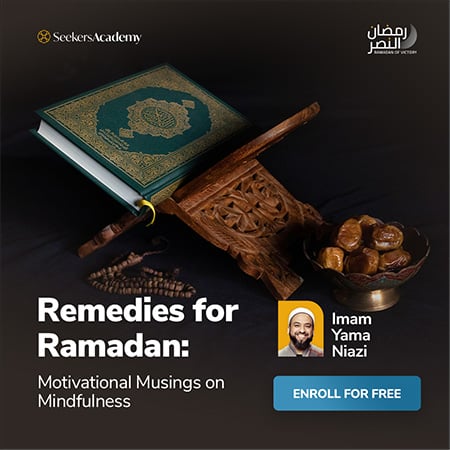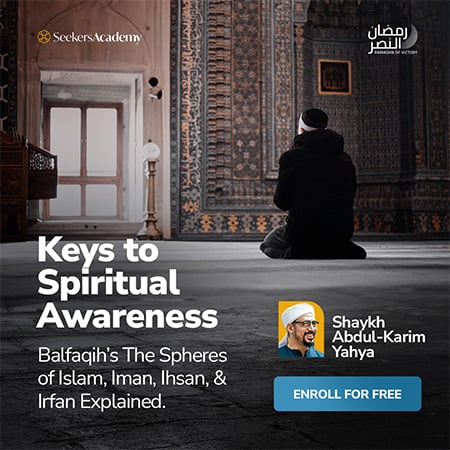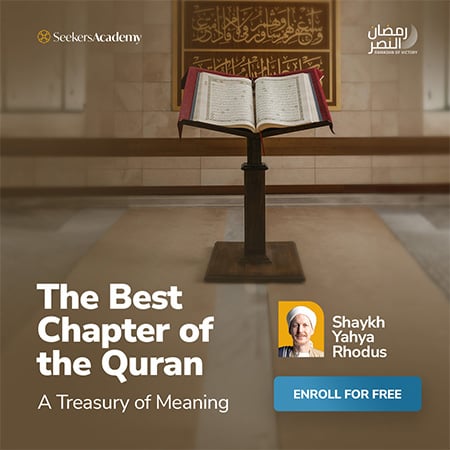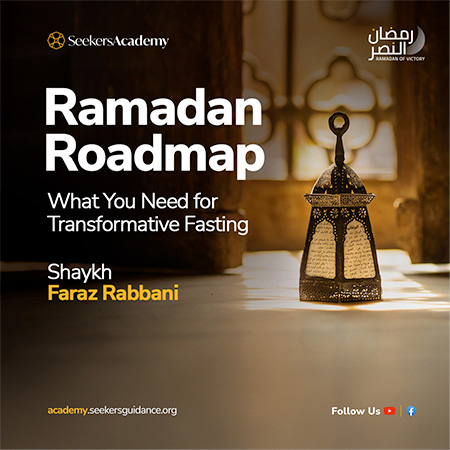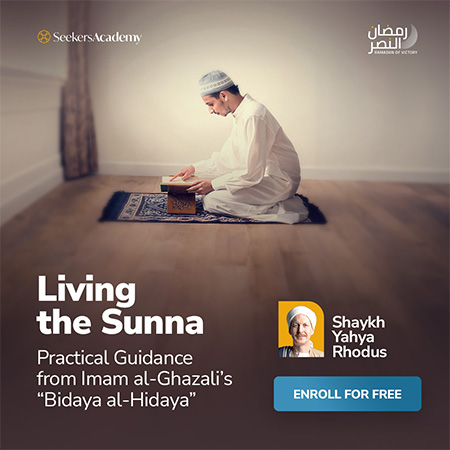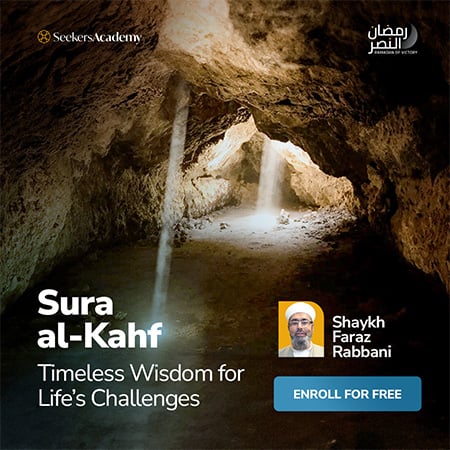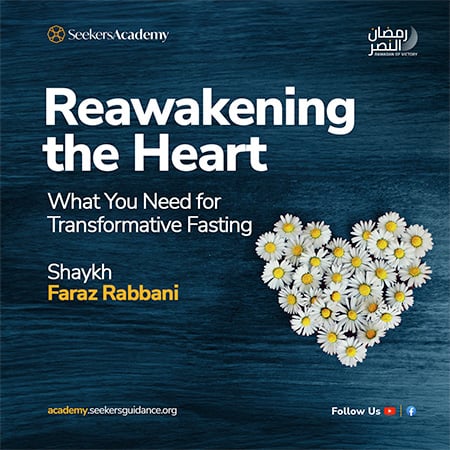
This course looks at a manual of spiritual counsels, The Firm Grasp (al-‘Urwa al-Wathiqa) by Imam Bahraq. This is a beautiful poem in 44 lines on the path of turning to Allah, living with mindfulness of Allah (taqwa), and beautifying one’s heart–by ridding oneself of blameworthy character traits, and acquiring praiseworthy traits of character.
Widely considered one of the most beneficial spiritual counsels, especially in the Hadhrami tradition, this text is truly a means of making one’s heart “A Beautiful Garden” (al-Hadiqa al-Nadiyya), which is what the author himself named his commentary.
Shaykh Faraz covers the poem, explaining its key lessons from the author’s commentary—which dips into the oceans of wisdom in the Islamic tradition, from Imam Ghazali, Imam Nawawi, and many others—and contextualizes this guidance to our times, so that we can bring these wisdoms into our lives.
The purpose of this course is to give us both the reminders and practical tools to consistently and systematically turn our hearts and lives to Allah Most High.
As one of the great giants of Hadhrami scholarship, Habib Ahmad ibn ‘Umar ibn Sumayt said, “The Garden of Bahraq is a gift from Allah Most High to the Muslims. I wish for it to be in every home; and that every heart memorize it—because it is a pure call to Allah Most High. It is the essence of the essence, and truly worthy of reliance.”
The Firm Grasp (al-‘Urwa al-Wathiqa) is a beautiful poem of spiritual counsel in 44 lines on the path of turning to Allah, living with mindfulness of Allah (taqwa), and beautifying one’s heart—by ridding oneself of blameworthy character traits, and acquiring praiseworthy traits of character.
Widely considered one of the most beneficial spiritual counsels, especially in the Hadhrami tradition, this text is truly a means of making one’s heart “A Beautiful Garden” (al-Hadiqa al-Nadiyya), which is what the author himself named his commentary.
Imam Bahraq himself explains that, “Given that religion itself is sincere counsel… I saw it from sincere counsel to capture the hearts of noble folk… by authoring a poem unique in nature; singular and distinct; small yet great; little but full—containing within it the fundamental principles of spiritual wisdom and teachings; pointing to the core Prophetic hadiths around which faith (iman) and submission (islam) revolve…”
Imam Bahraq begins with a chapter on admonition on the need to have urgency to turn to Allah Most High, and the counsel to embrace mindfulness (taqwa). Then, he has ten chapters: each chapter has the number of counsels corresponding to the chapter number. (This is why some have referred to this as the Book of Numbers.) Finally, he closes with a closing call to uphold the teachings contained in the work.
- This course is for all ages
- It is particularly beneficial for those seeking to gain a deeper understanding of how to reconnect to Allah; to reawaken their religious practice in a rich and beautiful manner, and those seeking to purify their heart and character.
- It is a general-level spirituality course.
- This course can also be taken by anyone who is interested in cultivating their relationship with Allah.
- Understand the urgency of turning to Allah in life.
- Understand the centrality of mindfulness of Allah (taqwa), and of the purification of the heart.
- Appreciate how mindfulness of Allah is cultivated
- Appreciate how purification of the heart is attained through ridding oneself of the blameworthy traits of the heart, and acquiring the praiseworthy traits
- Understand how to uphold key routines and habits from Prophetic teachings to strengthen one’s faith, love of Allah, and one’s spiritual resolve
- Acquire a ‘spiritual toolkit’ to be able to make better life choices, to establish consistent habits, and to increase in consciousness and mindfulness of Allah.
